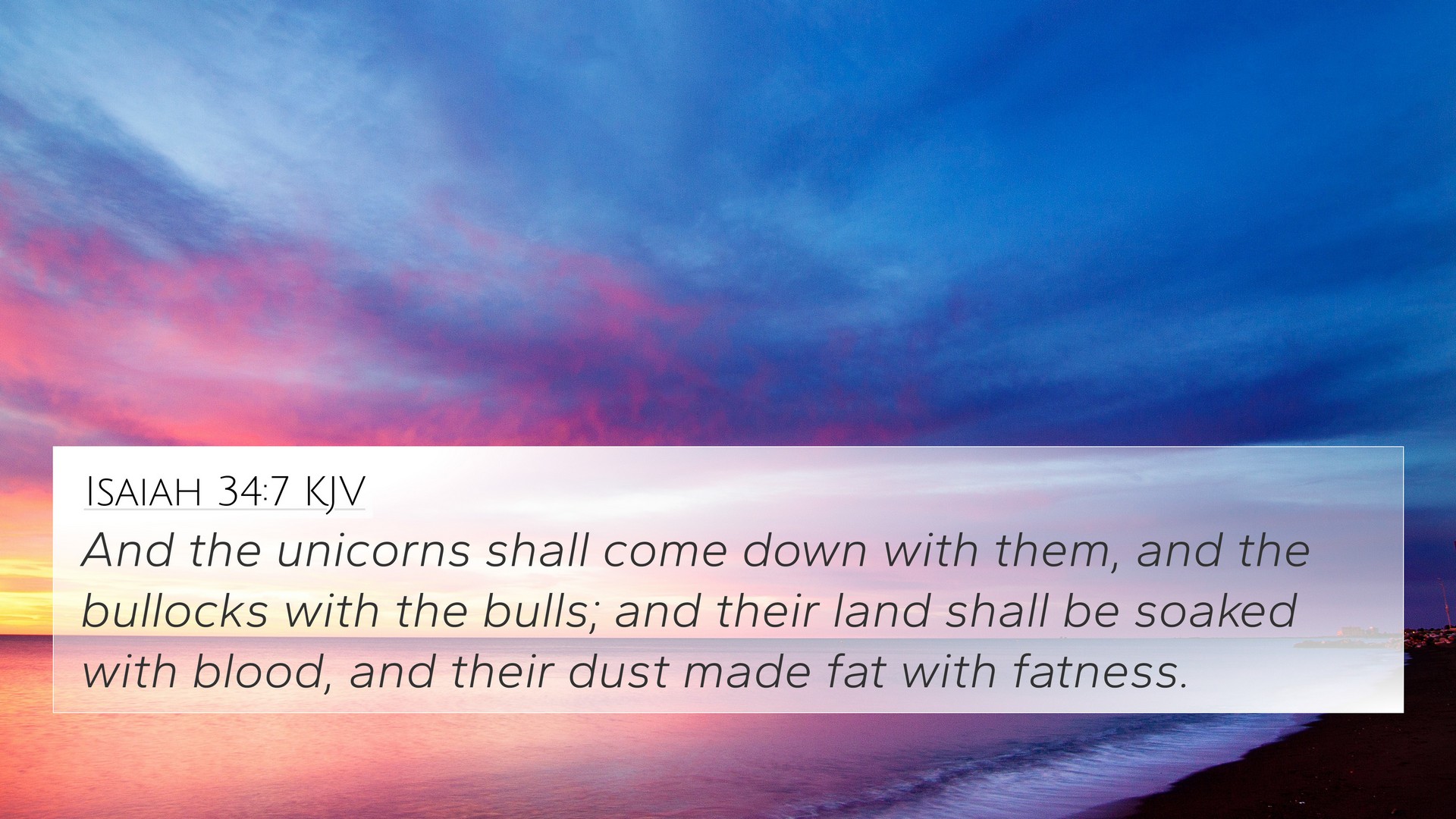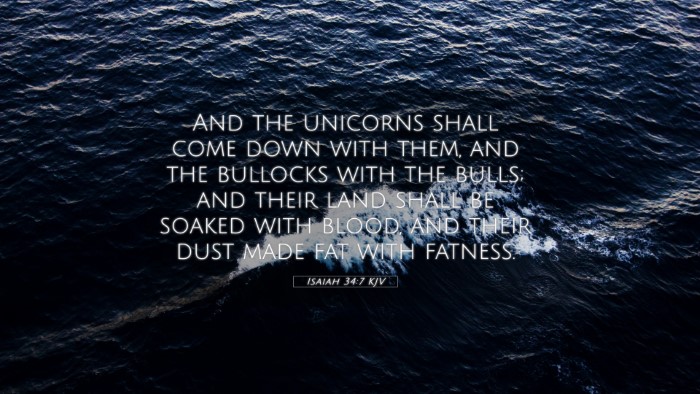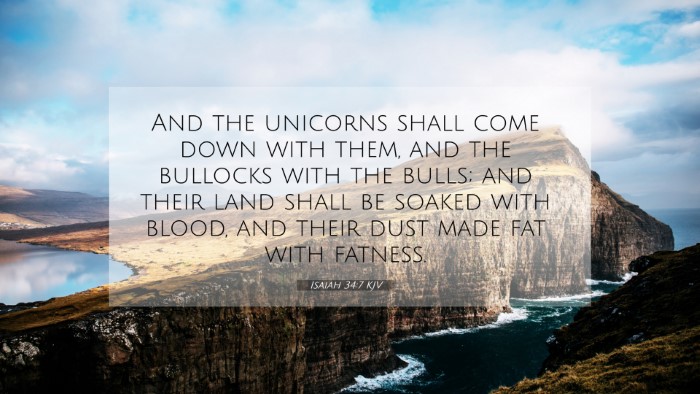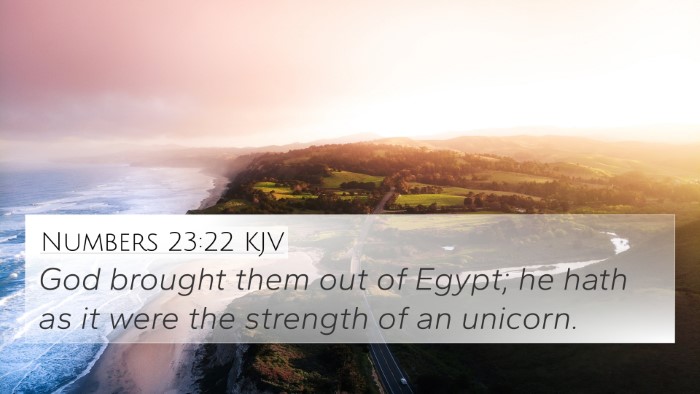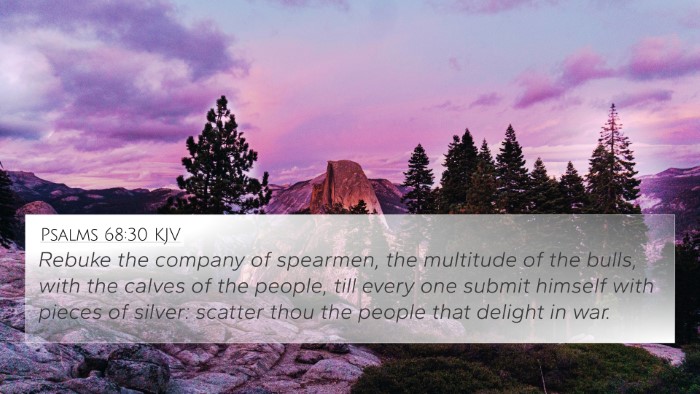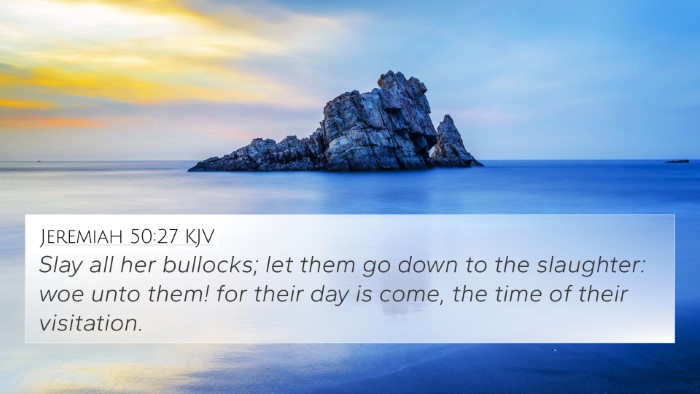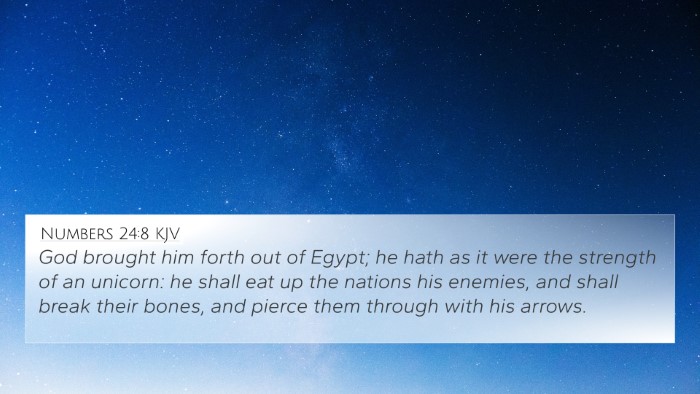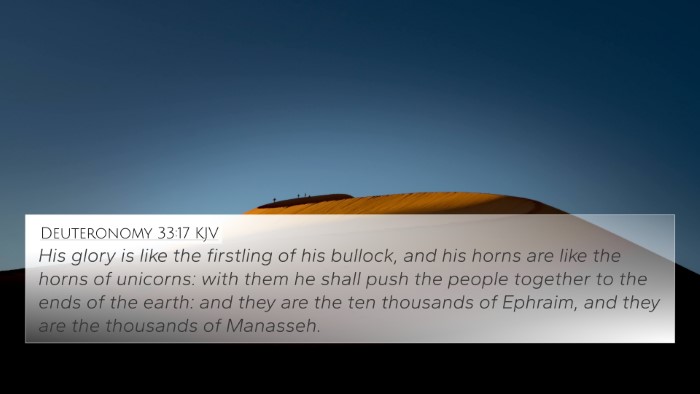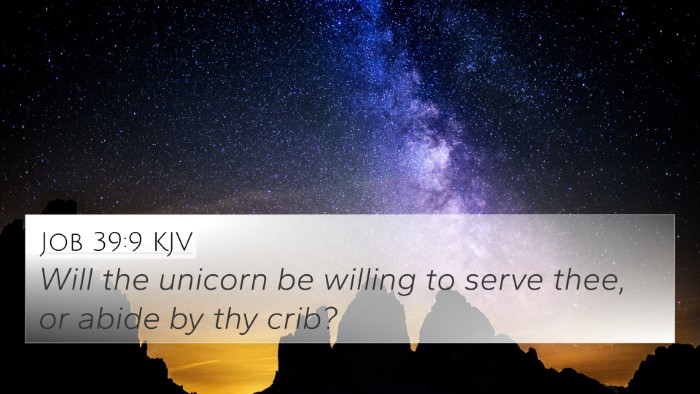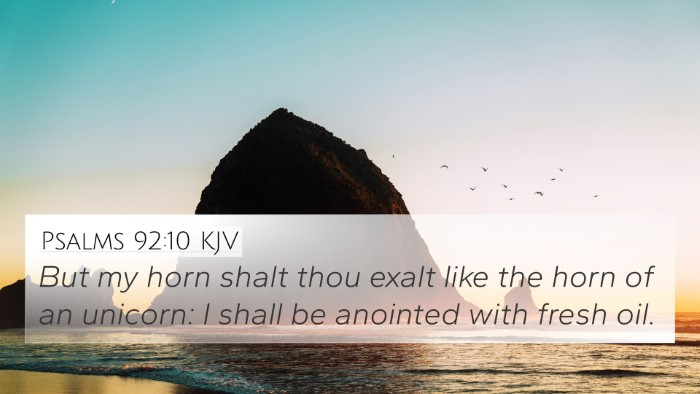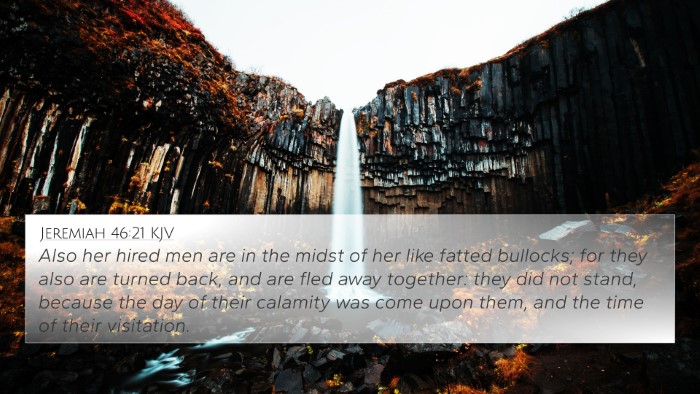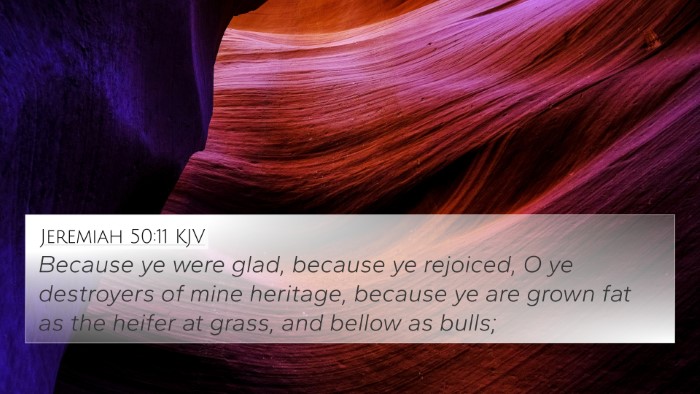Understanding Isaiah 34:7
Verse Context: Isaiah 34:7 reads, "And the unicorns shall come down with them, and the bulls with the mighty ones; their land shall be soaked with blood, and their dust made fat with fatness." This verse is part of a prophetic declaration regarding the judgment of Edom, symbolizing God's fierce retribution against nations that oppose Him.
Meaning of Isaiah 34:7
The verse conveys a vivid picture of devastation and divine judgment. The mention of unicorns and bulls symbolizes strength and power, alluding to the grandiose display of God's wrath. Such imagery emphasizes the seriousness of God’s judgment and the catastrophic consequences of sin.
Commentary Insights
Insights from public domain commentators such as Matthew Henry, Albert Barnes, and Adam Clarke enrich our understanding of this verse:
- Matthew Henry: He highlights the portrayal of divine judgment, explaining that the "unicorns" represent wild and potent forces that accompany the might of God. The blood and fatness signify the total destruction and the obliteration of pride among nations that forsake righteousness.
- Albert Barnes: Barnes emphasizes that this verse illustrates the end of a great conflict where even the powerful (symbolized by bulls) will be brought low. He discusses the implications of such imagery for understanding God's sovereignty and justice, asserting that the land will bear witness to God's judgment through its blood-soaked soil.
- Adam Clarke: Clarke delves into the symbolic language used, noting that the "unicorns" likely referred to strong and untamed animals. He also connects this imagery with God's ultimate authority to enact judgment, reflecting a broader theme of divine power prevailing against evil.
Cross-References for Deeper Understanding
To fully grasp the implications of Isaiah 34:7, several related verses can provide additional context and insight:
- Isaiah 63:3: "I have trodden the winepress alone; and of the people there was none with me." This verse emphasizes the theme of individual divine judgment.
- Ezekiel 39:18: "Ye shall eat the flesh of the mighty, and drink the blood of the princes of the earth." This reflects the imagery of divine retribution in a manner similar to Isaiah 34:7.
- Revelation 14:20: "And the winepress was trodden without the city, and blood came out of the winepress, even unto the horses' bridles." This prophesies the end times judgment, paralleling the themes found in Isaiah.
- Psalms 68:23: "That thy foot may be dipped in the blood of thine enemies, and the tongue of thy dogs in the same." This connects to the idea of a great victory through judgment.
- Joel 3:13: "Put ye in the sickle, for the harvest is ripe: come, get you down; for the press is full, the fats overflow." This calls upon similar imagery of divine judgment and retribution.
- Jeremiah 46:10: "For this is the day of the Lord God of hosts, a day of vengeance." This correlates the concept of divine vengeance present in Isaiah 34:7.
- Romans 12:19: "Vengeance is mine; I will repay, saith the Lord." This New Testament perspective on God's justice amplifies the message of judgment found throughout the scriptures.
Thematic Connections Across Scriptures
Isaiah 34:7 links deeply with broader biblical themes of divine justice, punishment, and the consequences of sin:
- God’s Judgment: Central to Isaiah 34:7 is the concept of God executing judgment, a theme prevalent in both the Old and New Testaments.
- Symbolism of Strong Beasts: Both Jesus’ teachings and the prophetic literature often utilize animal imagery to signify power, revealing deeper truths about spiritual battles.
- Blood as Judgment: The motif of blood indicative of judgment is consistent, linking the destruction of Edom to eschatological themes found in Revelation.
Conclusions and Practical Applications
Understanding Isaiah 34:7 through the lens of these commentators and cross-references encourages a deeper examination of God's character as just, powerful, and ultimately sovereign. It invites readers to consider their own lives in light of God's judgments and to seek His mercy and righteousness.
In summary, through the lens of thematic connections and cross-references, Isaiah 34:7 provides profound insight into God’s nature and the gravity of divine judgment, echoing throughout the entirety of Scripture.
